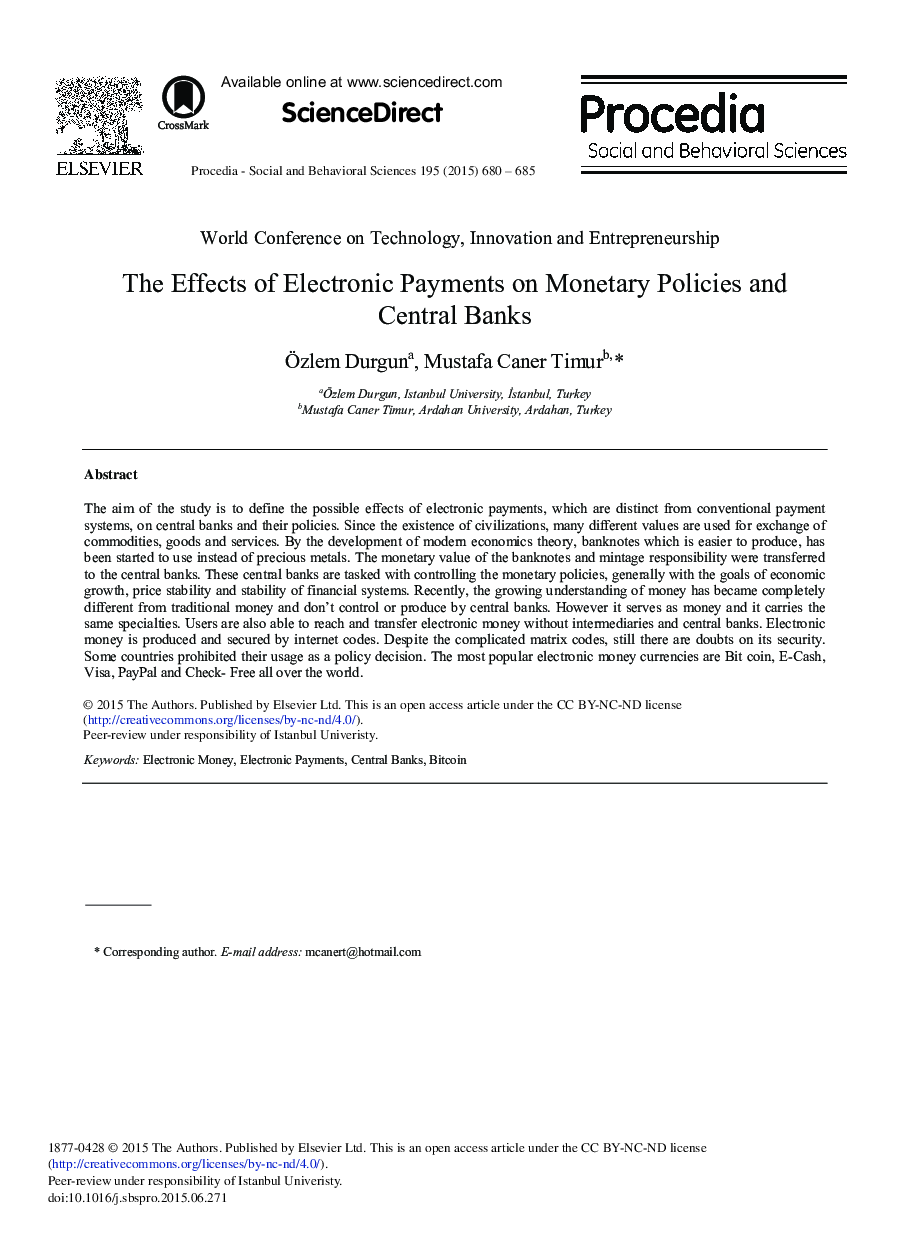| Article ID | Journal | Published Year | Pages | File Type |
|---|---|---|---|---|
| 1110092 | Procedia - Social and Behavioral Sciences | 2015 | 6 Pages |
Abstract
The aim of the study is to define the possible effects of electronic payments, which are distinct from conventional payment systems, on central banks and their policies. Since the existence of civilizations, many different values are used for exchange of commodities, goods and services. By the development of modern economics theory, banknotes which is easier to produce, has been started to use instead of precious metals. The monetary value of the banknotes and mintage responsibility were transferred to the central banks. These central banks are tasked with controlling the monetary policies, generally with the goals of economic growth, price stability and stability of financial systems. Recently, the growing understanding of money has became completely different from traditional money and don’t control or produce by central banks. However it serves as money and it carries the same specialties. Users are also able to reach and transfer electronic money without intermediaries and central banks. Electronic money is produced and secured by internet codes. Despite the complicated matrix codes, still there are doubts on its security. Some countries prohibited their usage as a policy decision. The most popular electronic money currencies are Bit coin, E-Cash, Visa, PayPal and Check- Free all over the world.
Related Topics
Social Sciences and Humanities
Arts and Humanities
Arts and Humanities (General)
